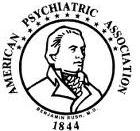The 19th century took the care of the mentally ill out of ancient times and dealt with the matter in a more humane and compassionate way. The progression of mental health care had many breakthroughs over the years to come, the most noteworthy being the mental health reform movement in the 19th century.
The 18th century was known as the "Period of Enlightenment" but this term certainly did not apply to the treatment of the mentally ill. Little progress had been made from the time of the Greeks and Romans when the ill were thought to be possessed by demons and subjected to exorcisms. The mentally ill in Colonial America were considered criminals, rogues, and vagabonds. It was the common belief that they were incurable and incapable of any sense of sensation. They were most often erroneously placed in jails, poorhouses, asylums, or wandered freely about. It was not until 1742 that the mentally ill citizens first gained legal recognition.
The statute mandated that responsibility must be taken for those incapable of caring for themselves. However this only succeeded in placing more ailing people in jails or similar situations where the care was excessively cruel and consistently futile. It was not until 1773 that the first public hospital opened in the United States. Gradually a small trickle of similar hospitals opened, but they were few and far between. Despite the new attempts to confine the mentally ill in these facilities, the treatment provided was heartless, and brutal (Talbott 15-18).
In the early 19th century the notion of "moral treatment" was dawning. The idea of moral treatment centered on the belief that the ill were conscious of emotions and capable of feelings, and perhaps even curable. The Quakers were the first to embrace this idea and after working for...



Health Care Reform
You have written a good essay on mental health care reform from a historical perspective and your report would have been even better had you included a bibliography to go along with your internal citations.
4 out of 4 people found this comment useful.